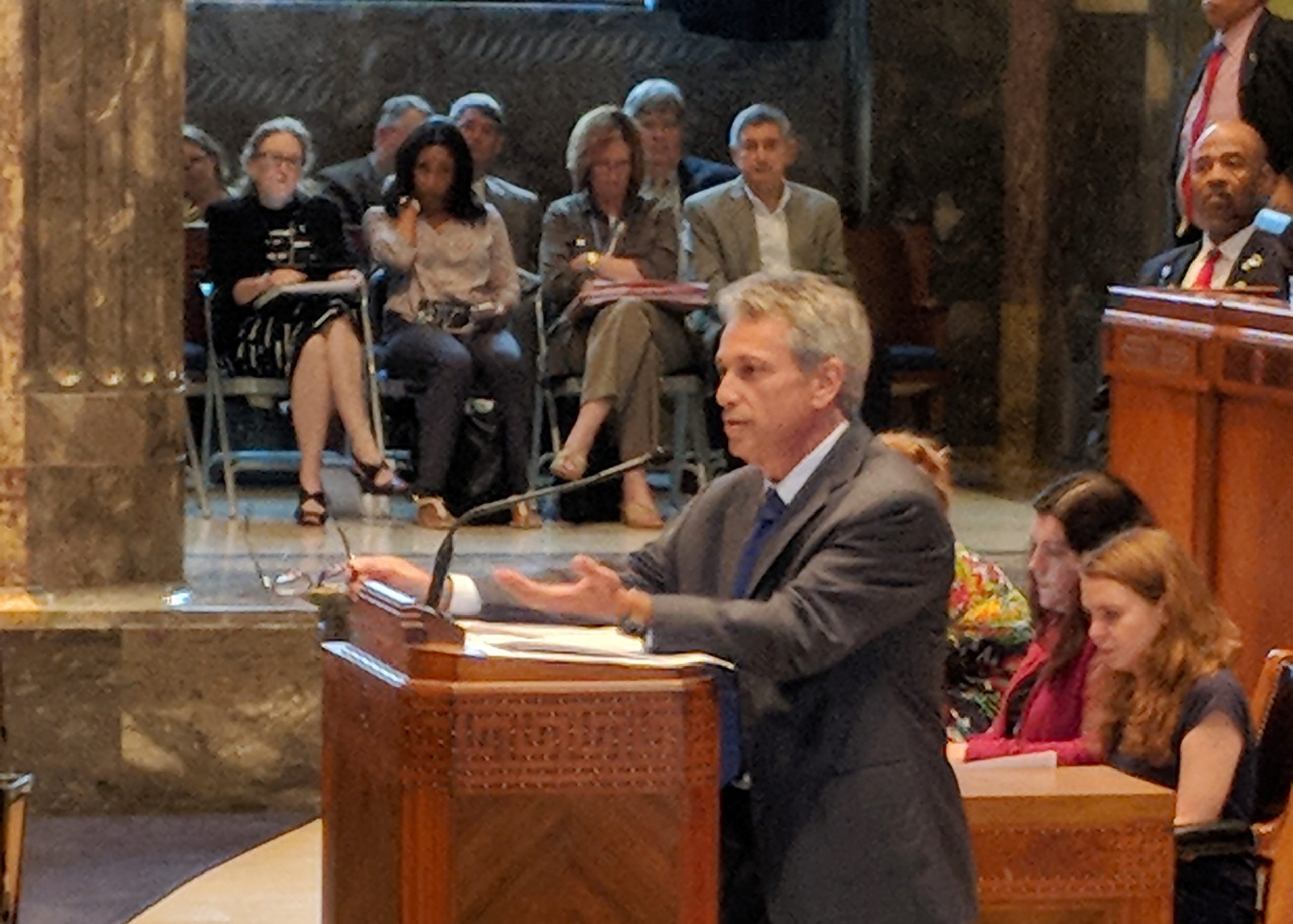By Tryfon Boukouvidis and Kaylee Poche, LSU Manship School News Service
BATON ROUGE — The Senate on Sunday approved a budget 38-1 that would fully fund TOPS scholarships, public universities and hospitals for the poor while imposing 2 percent cuts on other agencies.
The Senate also passed 29-9 a revenue bill that would raise $541 million by extending half of the extra cent of sales tax that is set to expire on July 1. The half of a cent would expire in 2025.
The Senate effectively challenged the House to renew more taxes than it would like to avoid more sweeping cuts as the special session comes to a close Monday. A version of the bill passed by the House last week would raise $396 million, partly by extending one-third of a cent of the sales tax.
But Sen. Eric LaFleur, D-Ville Platte, said in an interview Sunday night that he does not expect the House to agree to some of the changes, setting up a tense and dramatic finale for the sixth special session in two years.
The Senate’s budget also would use $53 million in settlement money from the BP oil spill to bring total spending next year to $594 million. That would fall $54 million short of what Gov. John Bel Edwards has said is needed to cover a looming $648 million shortfall.
“Today, we moved one step closer to avoiding catastrophic cuts to critical state services,” Edwards said in a statement immediately after the Senate approved the budget. “But make no mistake,” he added, “deep cuts will still be imposed in some areas.”
The budget and revenue bills will move to the House floor on Monday morning. If the House amends them further, a conference group with members from both chambers will consider revisions before final approval.
The Legislature must finalize the budget by 11:59 p.m. Monday when the special session ends. Not passing a budget would prompt the governor to call a third special session for the year and the seventh since February 2016.
Under this plan, there would also be 2 percent across-the-board cuts to most state agencies except for the Department of Health and the Department for Children and Family Services.
If the House and a conference committee do not agree to raise as much revenue as the Senate would like, there could still be cuts to TOPS, higher education or health care.
The Senate figures also assumes $67 million in savings based on the state tightening qualification requirements for Medicaid. Louisiana Department of Health officials have expressed qualms about whether the Senate should rely on this money.
The special sessions, which cost taxpayers $50,000 to $60,000 a day, have been marked by lawmakers’ inability to reach a compromise.
House Republicans typically oppose raising taxes while most Democrats sided with Gov. Edwards, who supports raising the state sales tax to half a penny.
On Sunday evening, the Senate also added funding of $3.2 for Southern University, $1.5 million for Grambling State University, and $1.1 million for Go Grants, funds for students who have a financial need and do not receive TOPS. The funds were sought by the Louisiana Legislative Black Caucus, which is concerned that raising the sales tax disproportionately affects the poor.
“We worked very hard on this bill,” LaFleur said. “We could have passed it a long time ago.”
Before the Senate amended the budget, the version that the House had approved would have cut TOPS by 10 percent and slashed health care programs by $116 million, or over half a billion including federal matching funds. State officials said such reductions would devastate mental health services and substance abuse treatment programs.
The House spending plan also would have cut the Department of Corrections by $24 million. The reductions would have mainly affected local sheriffs, who would have had to send thousands of inmates from their parish jails to overcrowded state facilities. This could have increased the possibility of releasing inmates early and getting sued for not offering adequate accommodation to inmates.
The Senate amended the sales tax bill to raise the sales tax extension from one-third of the penny, as the House had proposed, to half, making the state’s portion of the sales tax 4.5 percent.
Under the House version of the bill, the extra third of a cent of sales tax would have expired in 2023. A Senate committee had changed that to make the increase permanent, but the full Senate voted last night to have it expire in 2025.

